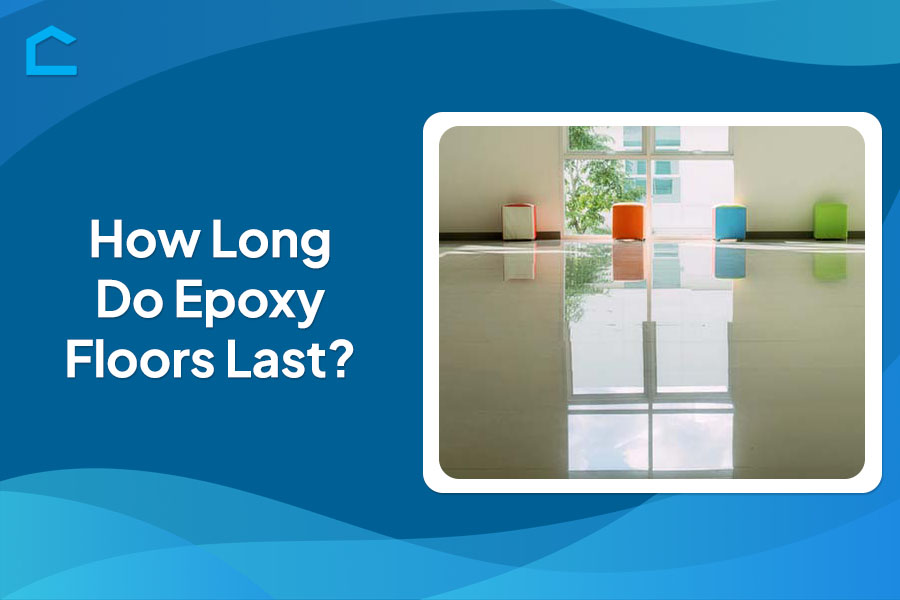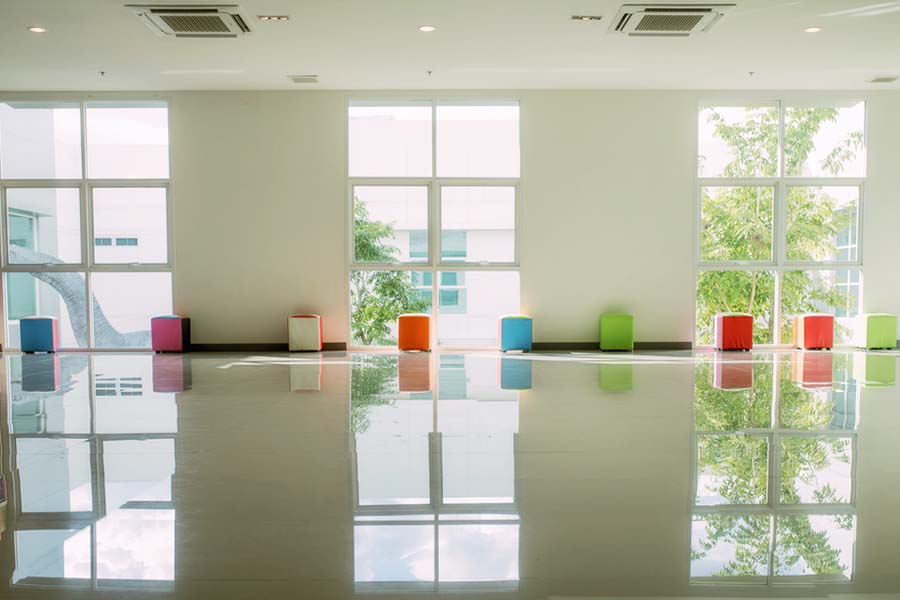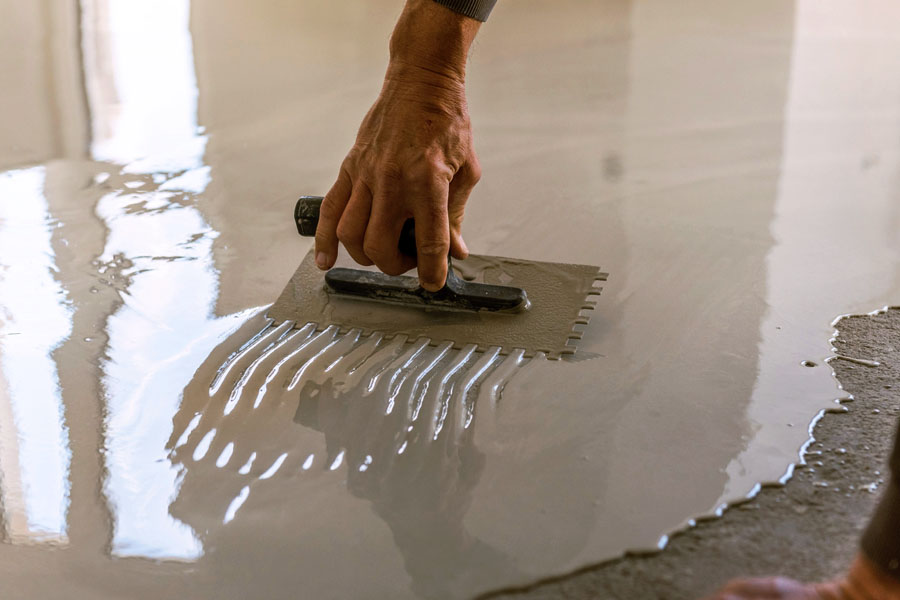How Long Do Epoxy Floors Last?

Ever considered transforming your garage, home, or basement’s dull concrete floor into a gleaming, durable masterpiece? Epoxy flooring might be the answer. They are easy to care for, and the best part is that these types of floors are long-wearing. But exactly how long do last?
Dive into this article to explore the factors influencing the lifespan of epoxy floors and uncover the secrets to maximizing their longevity and getting the most bang for your buck.
By the end of this article, you’ll have a comprehensive understanding of what to expect from your epoxy floor and how to ensure it remains a beautiful and functional part of your property for years to come.

How Long Do Epoxy Floors Last?
How long does epoxy floor last in home?
Epoxy floors typically last between 10 and 20 years or more with proper care. The lifespan depends on factors like installation quality, epoxy type, and maintenance. This impressive lifespan is thanks to the inherent toughness and resistance to wear and tear that epoxy offers.
Regular cleaning, avoiding harsh chemicals, and minimizing heavy impacts can extend the epoxy floor’s longevity.
Quality installation ensures durability and maximizes lifespan. While some wear and tear are inevitable over time, well-maintained epoxy floors can provide lasting protection and aesthetics for residential, commercial, and industrial spaces.
Factors Influencing Epoxy Flooring Lifespan
Materials and installation
The quality of epoxy resin, hardener, and additives plays a crucial role, along with meticulous surface preparation, proper mixing ratios, and skilled application. High-quality epoxy systems with performance-enhancing additives and thorough surface preparation are essential.
Environmental factors
The amount and type of traffic the epoxy floor will endure play a significant role in its lifespan. Heavy machinery, forklifts, and high foot traffic can wear down the epoxy coating over time, especially if it’s not designed to withstand such loads.
Epoxy flooring may come into contact with various chemicals depending on the environment it’s installed in. Exposure to chemicals such as acids, solvents, oils, and other corrosive substances can degrade the epoxy coating and shorten its lifespan
Direct exposure to sunlight and UV radiation can cause yellowing, fading, and deterioration of epoxy flooring over time. UV-stable epoxy coatings or the use of topcoats with UV inhibitors can help mitigate this issue.
Lastly, extreme temperature fluctuations and high humidity levels can affect the performance of epoxy flooring. Expansion and contraction due to temperature changes can lead to cracking and delamination if the epoxy isn’t formulated to withstand such conditions.
Maintenance and repairs
Regular maintenance, including cleaning and periodic recoating, can extend the lifespan of epoxy flooring.
Following manufacturer guidelines during installation, limiting heavy traffic areas, and implementing a regular maintenance routine contribute significantly to a longer lifespan. Periodic repairs or recoating may be required, especially in high-traffic zones or harsh environments.

Coating thickness and professional installation
A thicker epoxy coating generally enhances durability. To enhance the epoxy floor’s durability, we most definitely recommend professional installation by experienced contractors for optimal results.
Moreover, the conditions present during the installation of the epoxy flooring, such as temperature, humidity, and ventilation, can affect the curing process and overall performance of the coating.
Signs of Wear and Aging
Signs of wear and aging in epoxy floors include fading or yellowing of the surface, scratches, chips, dents, and loss of gloss. Cracks or delamination may occur where the epoxy separates from the substrate.
High-traffic areas like entryways and hallways tend to show these signs sooner, accelerated by moving equipment or machinery across the surface. Abrasive particles act like sandpaper, so routine cleaning helps remove them before excessive wear occurs.
Maintaining Epoxy Floors
Regular cleaning
To keep your epoxy floors crystal clean all the time, you’ll need to sweep or vacuum frequently to remove loose dirt and debris. Then, use a damp mop with a pH-neutral cleaner to prevent buildup. When cleaning, always avoid harsh scrubbing or abrasive pads that can scratch the surface.
If case you notice spills, address them promptly to prevent staining or chemical damage.
Minimize impact
To minimize the impact of wear and tear, we recommend avoiding dragging heavy objects across the floor without protection or using furniture pads or dollies to lift and move items. High heels or sports cleats can dent or chip the epoxy, so try to wear heels on the floors as little as possible. Also, it would be good to place mats or rugs in high-traffic areas to minimize impact.
Refinishing options
Refinishing involves sanding or grinding down the existing epoxy coating and reapplying a new layer. This process restores the appearance and protective qualities of excessively worn or improperly installed floors. The extent of sanding/grinding depends on the coating’s condition.
After surface preparation, a new high-performance epoxy resin is applied for full protection and a fresh look. Refinishing allows enhancing the floor further with slip-resistance, color flakes, or quartz broadcast finishes. When done periodically, an epoxy floor’s lifespan can potentially be doubled or tripled.

Conclusion
The longevity of epoxy floors hinges on using high-quality materials, ensuring expert installation, controlling traffic levels, and implementing diligent maintenance. Selecting the ideal epoxy system and having it installed properly by seasoned professionals lays the foundation for long-lasting performance.
Consistent cleaning, promptly addressing signs of wear, and minimizing environmental stressors like UV rays and chemical exposure are crucial for maximizing durability. How long do epoxy floors last? With proper upkeep, epoxy floors can provide over a decade of service life in many residential and commercial settings.
Periodic refinishing allows you to renew the coating when needed, restoring the floor’s fresh appearance and protective qualities. This can potentially double or triple the overall lifespan before a full replacement is required. With the right care, epoxy flooring can be an attractive, hardwearing, and lasting solution.
